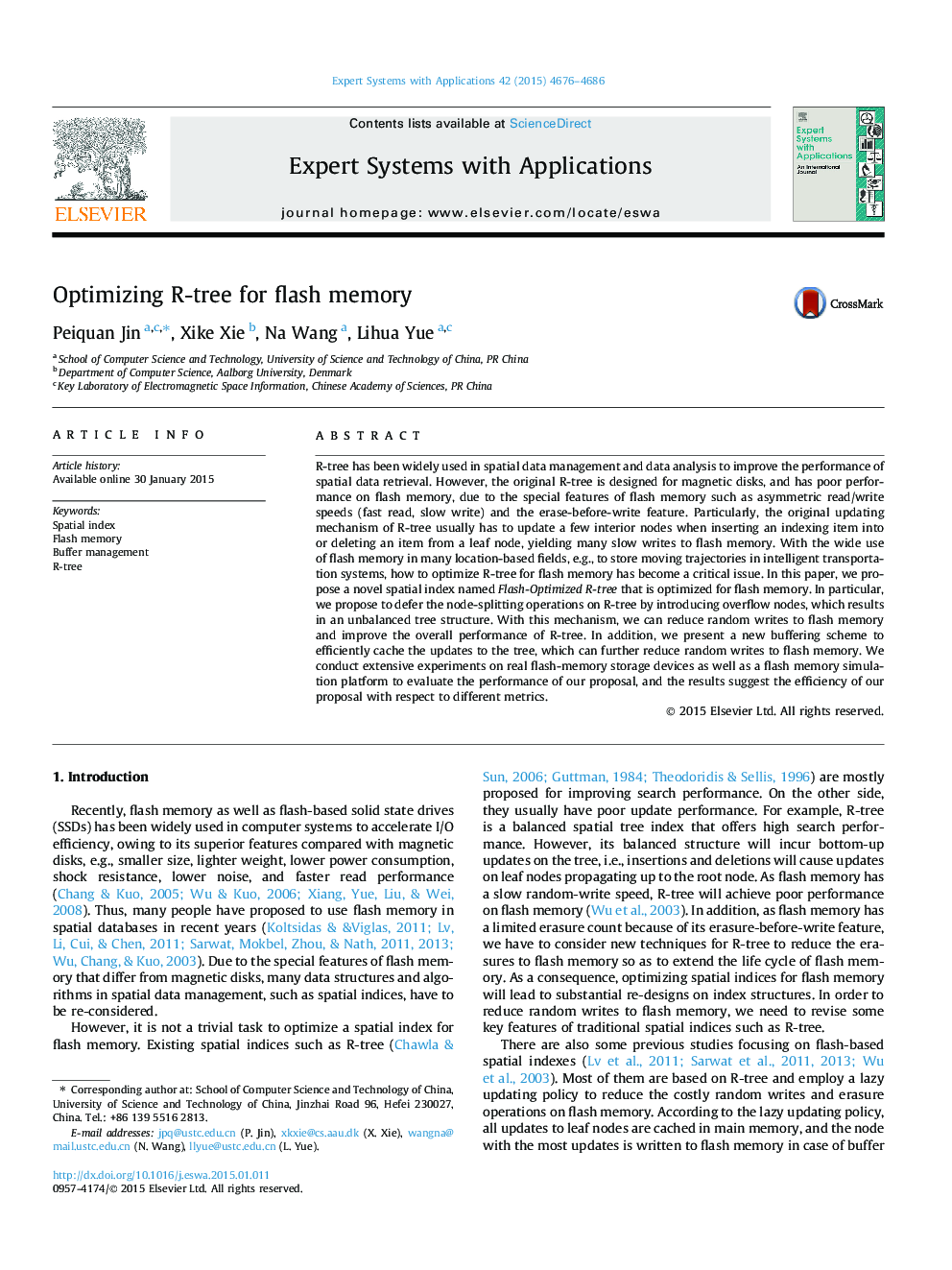| Article ID | Journal | Published Year | Pages | File Type |
|---|---|---|---|---|
| 382172 | Expert Systems with Applications | 2015 | 11 Pages |
•We proposed a flash-optimized unbalanced R-tree index for flash memory.•We introduced overflow nodes to defer node-splitting operations on the index.•We presented a new buffering scheme to cache the node updates to the index.•We conducted experiments on both real solid state drives and a flash simulation framework.
R-tree has been widely used in spatial data management and data analysis to improve the performance of spatial data retrieval. However, the original R-tree is designed for magnetic disks, and has poor performance on flash memory, due to the special features of flash memory such as asymmetric read/write speeds (fast read, slow write) and the erase-before-write feature. Particularly, the original updating mechanism of R-tree usually has to update a few interior nodes when inserting an indexing item into or deleting an item from a leaf node, yielding many slow writes to flash memory. With the wide use of flash memory in many location-based fields, e.g., to store moving trajectories in intelligent transportation systems, how to optimize R-tree for flash memory has become a critical issue. In this paper, we propose a novel spatial index named Flash-Optimized R-tree that is optimized for flash memory. In particular, we propose to defer the node-splitting operations on R-tree by introducing overflow nodes, which results in an unbalanced tree structure. With this mechanism, we can reduce random writes to flash memory and improve the overall performance of R-tree. In addition, we present a new buffering scheme to efficiently cache the updates to the tree, which can further reduce random writes to flash memory. We conduct extensive experiments on real flash-memory storage devices as well as a flash memory simulation platform to evaluate the performance of our proposal, and the results suggest the efficiency of our proposal with respect to different metrics.
